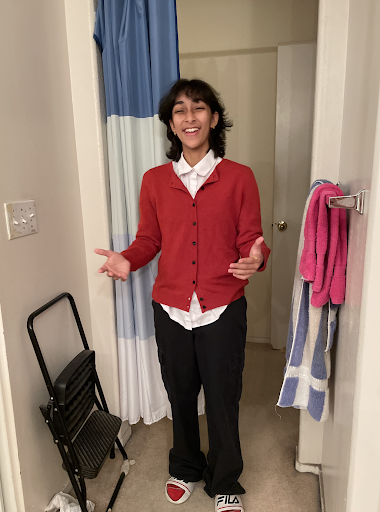Image from DALL·E.
In the mornings as the 8:30 bell rings Washington’s students rush to get to their classes in time to save themselves from high school’s version of prison: detention. Some are lucky and make it to their seats just as the bell makes its usual shrill noise. Others, however, have to face the wrath of an angry teacher who sternly instructs them to take the trip down to the front office to collect a detention slip. But how effective is this? Is sending students to the office after the bell has rung really enforcing the rule of getting to class on time so one doesn’t miss anything?
Although being tardy shouldn’t be encouraged and should be corrected, there are many small details of this rule that don’t make sense. When teachers make students walk to the office to get a detention slip they are just missing more class time than they did when they arrived late. When it comes to the actual punishment, instead of a small punishment or warning, students are given an hour’s detention. During this hour-long imprisonment, students are not permitted to use electronic devices or talk to other students. They are only allowed to work on homework or read a book. Seeing as most students have their homework online this isn’t really a productive use of their time. In fact, this is counterintuitive, since the reason for being in detention is that they were missing class time when they could have been learning.
This same tardy rule applies to students who are late after the lunch period ends. The argument differs from student to student, but all have expressed their distaste for this rule. Some students say that being a couple of minutes late after lunch shouldn’t be grounds for detention since many students go off campus to eat. Getting to and from a restaurant or snack shop can take time, especially if you get caught in traffic or your food takes a while to be ready. Although this rule is set by administrators, each individual teacher can decide if they wish to send their students down to the office or not. Certain circumstances should allow students to be waived from detention; however, being late consistently shouldn’t be tolerated. The point of rules is to enforce them and ensure students aren’t late again.
As more and more students are sent to the office for being late there have also been frequent complaints regarding the behavior of the office staff. “They aren’t ready to ever listen to what I have to say about being late: it’s really disrespectful,” said one student. This just goes to show that although these rules are set in place to discipline students and encourage them to get to school on time, not hearing students out shouldn’t be acceptable. One student was late to school due to the fact that they got into a car accident in the morning, resulting in a delay in getting to school on time. Despite this valid excuse the office still gave that student detention. As more and more students are complaining, students are wondering if the admin at Washington will notice.
The question still remains: how serious of a reason must students provide to be exempted from receiving detention? Will the school refuse to exempt any student from detention no matter the circumstances? Some students suggested that the issue is our schedule itself. One student stated that Washington should have two separate lunches, which would decrease the amount of traffic there is during lunch, further allowing students to get to class on time. As for the morning schedule, some students claim that school starts too early, not allowing students to wake up on time. Others say the timing for the morning is fine but the traffic and chaos cannot be controlled. The school should be more lenient and keep these factors in mind.
At the end of the day, students deserve to be treated fairly and teachers and administrators at Washington should learn to listen to students instead of trapping them in a jail cell and treating them like prisoners who do not matter and whose opinions aren’t valued.
Huskies in the Halls:
What do you think of Washington’s tardy policy?






